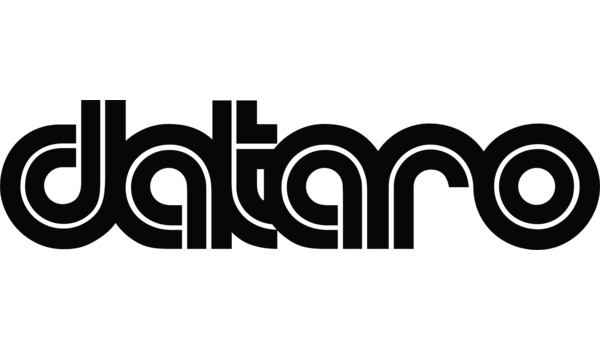
Dataro
Turn your donor data into donor predictions and identify ready-to-give donors with ease.
Dataro Predict tells you which of your donors are likely to give again, upgrade, re-activate, churn, and more, so you can make the right ask at the right time.
The result? Real-time donor insights, better selections and high-return campaigns.
The result? Real-time donor insights, better selections and high-return campaigns.
Description
Identify ready-to-give donors across all fundraising programs!
Dataro Predict generates predictions for every donor in your database, so you make the right ask, to the right donor, at the right time.
Benchmark and report on your fundraising results with ease!
Benchmark and report on your fundraising results with ease!
Fundraising Intelligence empowers fundraisers to track results in real-time and benchmark against similar nonprofits to help improve performance.
Generative AI that writes like a real fundraiser, but faster!
Generative AI that writes like a real fundraiser, but faster!
AI Assist creates on-brand, fundraising-specific copy optimized for your goals. Personalize donor communications and get first drafts done faster.
Media
Resources
FAQ
Artificial intelligence (AI) is a type of computer science focused on building smarter machines that can perform tasks that would typically require human thought. The technology that this type of research produces is often called “artificial intelligence” or “AI-driven technology.”
By replicating the complex comparisons and judgment calls that come easily to the human brain, AI-powered systems are intended to help people streamline activities that would otherwise eat up their time. For nonprofits, this means more time to actually execute fundraising strategies instead of spending all day studying data in order to refine those strategies.
Machine learning (ML) is the underlying process that drives artificial intelligence. A machine learning system analyzes sets of data to find complex patterns in order to “learn” how that data will likely perform in the future. With a steady stream of incoming data, a machine learning algorithm can adapt based on how accurate its past insights and predictions were.
Machine learning systems can use hundreds of different data features or factors to make complex connections. While a human brain can often identify data trends and relationships instinctively, a well-trained machine learning algorithm can uncover trends that even experienced users might miss on their own.
Predictive modeling involves using data to find patterns that help to predict future outcomes.
In the context of AI technology, predictive modeling is driven by the broader process of machine learning in order to create data-driven, real-time predictions. The machine learning algorithm continuously analyzes incoming data and the relationships between those data points to create a model of how future data is expected to perform. Over time, the machine learning tool will refine this model to produce increasingly accurate predictions.
Propensity modeling is a form of predictive modeling. Rather than simply predicting what your future data will look like, propensity models dig deeper to predict the likelihood that individuals will complete certain actions.
For nonprofits using AI-driven tools, propensity models can be used to predict a range of actions, such as the likelihood that a donor will churn, convert to a monthly giving program, or make a major gift.
Nonprofits can use artificial intelligence to streamline and improve the segmentation process, which can drastically boost their fundraising results and efficiency.
Simply put, artificial intelligence, driven by machine learning, takes the guesswork out of segmentation.
With well-trained machine learning algorithms, the right tool will use predictive and propensity models to provide your nonprofit with constantly-updated and increasingly accurate lists of donors who are likely to take a particular action. In an everyday context, these predictions may take the form of automatically generated lists or easily filtered propensity scores right in your CRM or donor database.
Previously, artificial intelligence technology was out of reach for many nonprofits with limited budgets or tech capacities. Today, organizations of all shapes and sizes can use artificial intelligence to fundraise in smarter, more efficient ways. Large and small nonprofits, universities, and healthcare institutions have all found success with AI-driven fundraising.
AI tools are a smart investment now because the COVID-19 pandemic and the post-COVID fundraising landscape are requiring nonprofits to use their data in smarter ways than ever before. However, while more nonprofits are realizing the immense value of collecting data to guide their strategies, much fewer of them actually have the time, resources, and expertise to generate value with that data.
AI technology can fill the gap between collecting data and putting it to work for your mission. Luckily, AI and machine learning technology have evolved to deliver everyday value for larger numbers of nonprofits. AI-style features that score prospects are cropping up everywhere, as are more comprehensive machine learning tools (like Dataro) that offer ground-up AI technology.
Looking at the bigger picture, it’s also important for nonprofit organizations to recognize the changing roles that they play in society and how modern technology should help them.
Testimonials

Amy Dana, Database Manager
Bat Conservation International increased appeal revenue by 160%, raised an additional $48k and achieved a campaign ROI of +490%
Dataro’s donor insights are simple to understand and actionable. With Dataro we can turn around a campaign list in hours and know we are selecting the right donors for our asks and not over-investing in donors who aren’t ready to give again.

Naomi Vaughan, Legacy Specialist
Amnesty International grew their confirmed gifts in Will by 60% YOY using Dataro, adding an estimated $4.32 M in additional income generated (average Bequest $60k)
I don’t know how I would do my job as a Gifts In Will Specialist without Dataro’s donor predictions. With Dataro I know exactly which donors are most likely to be interested in leaving a bequest gift so I know where to focus my efforts and who to nurture with our campaigns. We’re thrilled with our results so far and have grown our bequest pipeline by 60% YOY in the second year of using Dataro’s gift in Will model.

Jo Purcell-Jones, Business Intelligence Manager
Australia for UNHCR increased average appeal ROI by +26% over 2 years
We have seen impressive results from the Dataro DM Appeal scores. We went through a thorough testing process to ensure that the scores were predicting accurately, and that by using them we were adding value to our mail appeals, without jeopardizing any potential revenue, and the results were clearly positive on both fronts.




